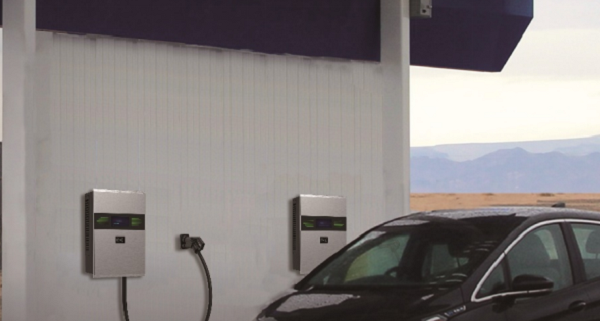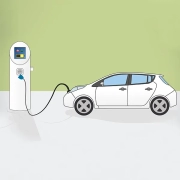As EV sales increase, so too does the need for fast charging stations. DC fast EV chargers have quickly become one of the key elements driving rapid market expansion; their high power characteristics make them attractive solutions for distributors as EV chargers and key drivers of rapid market development.
What Is DC Fast Charging?
Direct current fast charging is a technology for providing rapid recharging of electric vehicles at high power levels, distinguished by its high power design, battery management, cooling system, standards compatibility, network connectivity, data security as well as reliability and durability.
For fast charging speeds, DC fast chargers must be designed with high power output in mind, meaning their electronic circuitry must remain efficient and stable under high loads. Instead, DC fast charging uses direct current (DC) directly to recharge an electric vehicle’s battery without first having to convert AC to DC, thus providing faster power charging speeds.
Due to the considerable heat generated during high-power charging, DC chargers must also include an effective cooling system to keep their devices operating within safe temperatures. Due to various DC charging standards like CHAdeMO and CCS, manufacturers of EV chargers must ensure that their devices can accommodate various makes and models of electric vehicles.
Furthermore, for remote monitoring, management, and updating purposes DC chargers need to be connected to networks, which introduces additional data security concerns and privacy considerations which must be managed with appropriate measures in place.
DC chargers can deliver large amounts of power, with power levels typically reaching 50 kW or higher and high-powered charging stations capable of outputting outputs as much as 100 or 150 kW. When used in public places, reliability, and longevity become crucially important – this necessitates robust yet reliable designs capable of withstanding high-frequency use while remaining plug-and-play operationally. Overall, the technical features of DC EV chargers aim to meet the growing demands of the electric vehicle market by offering fast, safe charging solutions.
Are DC fast charging stations necessary for EVs?
Yes. DC fast charging stations provide a fast and effective charging solution that compensates for long-distance travel and emergency power needs. Furthermore, these charging stations can charge vehicles within a relatively short period allowing users more flexible charging options.
Rapid Reducing Charging Time. DC fast charging stations boast higher output than AC chargers (Level 1 and 2) and can quickly charge an EV in short order, providing drivers with immediate power when traveling long distances or when their batteries suddenly run low. Utilizing DC fast charging stations allows drivers to gain enough juice faster – increasing both the utility and viability of electric vehicles.
Supporting long-distance travel. With the growing popularity of electric vehicles comes an increase in user demand for long-distance travel. Thanks to fast charging features provided by DC fast charging stations, drivers can more easily plan and execute long trips without being limited by recharge times – greatly expanding the range and making electric transportation a more attractive mode of transport.
DC fast-charging stations help increase market acceptance of electric vehicles by alleviating range anxiety – the fear that an EV’s battery won’t support long-distance driving – creating more comprehensive charging infrastructure and creating greater trust in EV ownership, ultimately increasing market acceptance and popularizing this emerging sector within automotive. This accelerates its market acceptance as well as its implementation into automotive industries worldwide.
How Can I Locate a DC Charger Near Me
Locating a fast DC charger is essential for those seeking fast charging experiences with their EV. Here are key strategies for finding one near you.
-
Online charging maps and applications
Many EV manufacturers, distributors, and charging station operators have launched online platforms and mobile apps that offer real-time information regarding the location, availability, and status of DC fast chargers – giving owners of electric vehicles access to real-time information that helps them plan routes with ease while considering charging stations as potential options.
-
Vehicle navigation systems
Many modern EVs feature sophisticated in-vehicle navigation systems with built-in charging station information and filters for DC fast chargers, giving real-time updates about charging station availability and status. These systems enable drivers to filter for DC fast chargers while receiving real-time notifications about the availability and status of charging stations.
In-car navigation can make finding DC chargers during road trips simpler, enabling EV owners to seamlessly integrate charging stations into their travel plans for an enjoyable and stress-free trip.
Mapping services that enable the searching of electric vehicle charging stations such as Google and Apple Maps can also serve as effective resources to locate DC chargers. By searching “charging station” or “EV charging” within their app, users can quickly identify nearby charging station markers with detailed information available about each one.
Conclusion
Whilst DC fast chargers provide fast charging solutions for electric vehicle owners, DC chargers remain an integral component of improving electric transport by increasing the convenience and utility of using an EV in daily life.
Joint is an industry leader when it comes to electric vehicle charging equipment and is dedicated to offering efficient yet dependable charging solutions for multi-residential properties and businesses of any kind. Together we believe EV charging will become more convenient and sustainable over time – creating a better user experience overall.





Leave a Reply
Want to join the discussion?Feel free to contribute!